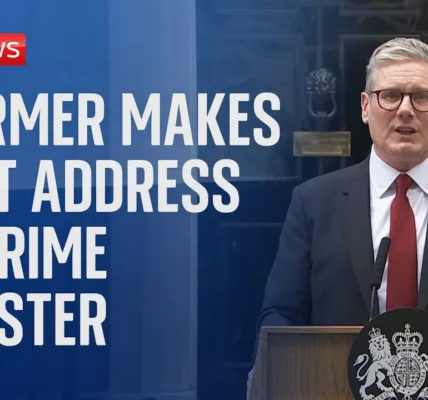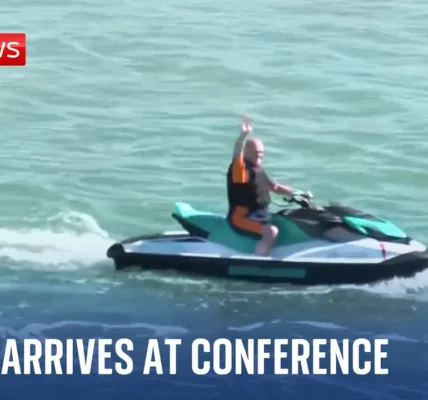Investigation Exposes How Europe is Funding Russia’s Invasion of Ukraine

This article delves into a Sky News investigation revealing the complex and often overlooked financial ties between Europe and Russia, particularly in the context of the ongoing conflict in Ukraine. It highlights the role of the UK in facilitating this trade and raises critical questions about the ethical implications of these actions amidst international sanctions.
Introduction
The ongoing war in Ukraine has led to a seismic shift in international relations, particularly between Europe and Russia. As Europe pledged to reduce its reliance on Russian energy supplies, a Sky News investigation has uncovered that the continent is still heavily intertwined with Russia’s energy sector. This article explores the findings of the investigation, which reveal how European countries, particularly the UK, are inadvertently funding Russia’s military efforts through liquefied natural gas (LNG) shipments. This relationship raises urgent questions about the effectiveness of sanctions and the moral responsibilities of nations involved.
The Murky Trade of LNG and Its Implications
Despite Europe’s public commitments to sever ties with Russian energy, the reality is far more complicated. The investigation reveals that LNG shipments from Russia to Europe continue unabated, with the UK playing a crucial role in this ongoing trade.
Dependence on Russian Gas
Data shows that even after imposing sanctions on Russian oil and coal, Europe remains the largest customer of Russian LNG. This dependence is driven by several factors:
- Economic Stability: European nations are wary of the potential economic shock that could follow a complete ban on Russian energy imports.
- Logistical Challenges: Transitioning to alternative energy sources takes time and requires substantial investment in infrastructure.
- Political Considerations: Many European leaders are reluctant to admit the ongoing financial ties to Russia for fear of political backlash.
Role of British Financiers
British companies are at the heart of this complex web, providing insurance and financing for LNG tankers. Notably:
- The UK P&I Club insures numerous LNG carriers, including those transporting gas from Russian ports to European markets.
- While British businesses are banned from insuring Russian oil shipments, no equivalent sanctions exist for LNG, allowing the trade to continue.
- British companies, despite having banned direct dealings with Russian entities, indirectly facilitate the flow of Russian gas into Europe.
Geopolitical Consequences
The continuation of Russian LNG imports has profound implications for international relations and security in Europe and beyond. The following points illustrate the broader geopolitical landscape:
Impact on Sanctions
Despite extensive sanctions aimed at crippling Russia’s economy, the ongoing importation of LNG undermines these efforts:
- Funding the War: The revenue generated from these gas sales directly supports Russia’s military operations in Ukraine.
- Questioning Sanction Efficacy: The apparent loopholes in the sanctions regime call into question the overall strategy of Western nations against Russia.
- Future Sanctions Policy: The need for a reevaluation of sanctions policies is crucial if the West hopes to exert meaningful pressure on Russia.
Public Perception and Political Ramifications
The public’s awareness of these issues is critical, as many citizens are unaware of how their governments’ energy policies may inadvertently support an aggressor:
- Political leaders must navigate the delicate balance of energy needs and moral responsibility.
- Increased transparency in government dealings may lead to public pressure for change.
- The ethical implications of continuing trade with Russia during an ongoing conflict cannot be overlooked.
Conclusion
The Sky News investigation brings to light the uncomfortable truth about Europe’s dependence on Russian energy, particularly LNG, and the UK’s pivotal role in this relationship. As the conflict in Ukraine continues, it is imperative that European nations confront the reality of their financial ties to Russia and reassess their strategies moving forward. The ongoing trade not only undermines the effectiveness of sanctions but also raises ethical questions about complicity in the funding of warfare. It is time for leaders to prioritize a transition to sustainable energy sources and to redefine their relationships with nations that pose a threat to global peace.
To learn more about the complex interdependencies in international energy trade and their implications, explore our related articles on energy policies and geopolitical strategies.
“`




